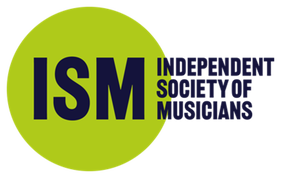06.02.23
Reforming the Secondary School Curriculum: #SaveOurSubjects
Alice Barnard
Chief Executive at the Edge Foundation
Chief Executive at the Edge Foundation
14.03.23
On 28 February 2023 the Foundation for Education Development (FED) hosted a virtual roundtable to discuss how we might revive creative and technical subjects in England’s secondary schools. The event, in collaboration with the Independent Society of Musicians (ISM) and the Edge Foundation united stakeholders from across education, business and policy making. Its aim? To explore a long-term vision for the future of arts and technical education. It follows the recent launch of ISM and the Edge Foundation’s joint #SaveOurSubjects campaign, which aims to redress the impact of the EBacc and accountability measures like Progress 8 on the uptake of creative and technical subjects. Chaired by FED Trustee, Professor Fiona Forbes, here is a taste of the discussion.
ISM's Chief Executive, Deborah Annetts, set the tone for the day by outlining causal links between accountability measures and the marginalisation of arts and technology education. As part of #SaveOurSubjects, she highlighted that nearly 600 stakeholders – both in and out of the education sector – have recently signed a letter to the Secretary of State for Education calling for change.
We also heard from Sally Bacon OBE, who shared highlights from an upcoming Arts in Schools report, co-authored for the 40th anniversary of the Gulbenkian Foundation. The report finds strong evidence that arts subjects are crucial for young people's lives and personal development, but there is a lack of value ascribed to them within the state system. It also notes, however, that issues within the education system at large are just as critical to this problem as the specific challenges faced by the arts. As such, we need a national conversation to define new purposes for schooling and an arts entitlement within the school day, among other possible solutions. The full report is released on 30 March.
Next, music educator Jenetta Hurst shared her experience from the ground. Despite a positive picture in her own school, she acknowledged that GCSE and A-level music entries are declining nationally, as are teachers in training. She emphasised the need for sufficient curriculum time to teach these subjects and a well-trained teaching team, including technicians and support staff for SEND students. She recommended using department development plans to actively embody a team's vision, using this to underpin effective teacher CPD, combined with opportunities for teachers and students to engage with industry professionals.
Two employer perspectives neatly rounded off the first session. Zainab Adigun, board member of the Association of Black and Ethnic Minority Engineers (AFBE-UK), leads school programmes that showcase STEM and engineering careers through career fairs, panels with industry experts, mentoring, and work placements. She emphasised a particular need to target disengaged students since entrenching the common mindset that they are ‘poorly behaved’ only reinforces existing inequities.
Meanwhile, Kathryn Lennon Johnson runs Built Environment Skills in Schools, which helps young people learn how the built environment affects people’s lifestyles. Both speakers agreed that students 'can’t be what they can’t see', highlighting the importance of showing young people the diversity of careers available. However, the biggest challenge is finding time in an already-packed curriculum to make their voices heard. Indeed, this issue emerged as a common theme.
Following breakout sessions that explored these issues further, attendees reconvened to discuss possible practical solutions. We heard from Helena Good, whose organisation Daydream Believers uses solutions-driven resources to place creativity at the heart of education. One of its offerings is an app that embeds 21st-century skills – like critical and creative thinking – into education, allowing teachers to build lessons that develop these abilities in their students. For instance, STEM teachers can use the app to select rubrics for custom feedback and grading, reducing their marking time. Additionally, Daydream Believers is collaborating with universities and colleges in Scotland to introduce a new GCSE and A-level in creative thinking. Could similar solutions also work in England?
Phil Avery, Director of Education for Bohunt Multi-Academy Education Trust, emphasised the need for care in defining the curriculum – it is not just a timetable issue, he said; arts and STEM subjects need embedding across all aspects of school. He also stressed the need to ensure that we promote places, spaces and people – encouraging effective engagement and richness of teaching. Finally, some school leaders, he said, should continue to understand the real value of the arts to students. Likewise, we must better inform communities about the importance of these subjects to their local economies and industries. His final point was that we must devise solutions that work for all, not just schools with greater freedom.
Finally, Andy Case, Senior Policy Advisor at the National Education Union, drew some conclusions from the day’s discussions. While everyone agreed that time, resources, and professional development are vital to supporting our creative and technology subjects, he said the blunt reality is that it boils down to money. Crucially, differences between state and independent schools mean that access to creative and technology subjects is fast becoming a social justice issue. A sobering but clear conclusion to the day. Greater funding and fewer restrictions on what schools can offer would undoubtedly have a transformative effect.
On 28 February 2023 the Foundation for Education Development (FED) hosted a virtual roundtable to discuss how we might revive creative and technical subjects in England’s secondary schools. The event, in collaboration with the Independent Society of Musicians (ISM) and the Edge Foundation united stakeholders from across education, business and policy making. Its aim? To explore a long-term vision for the future of arts and technical education. It follows the recent launch of ISM and the Edge Foundation’s joint #SaveOurSubjects campaign, which aims to redress the impact of the EBacc and accountability measures like Progress 8 on the uptake of creative and technical subjects. Chaired by FED Trustee, Professor Fiona Forbes, here is a taste of the discussion.
ISM's Chief Executive, Deborah Annetts, set the tone for the day by outlining causal links between accountability measures and the marginalisation of arts and technology education. As part of #SaveOurSubjects, she highlighted that nearly 600 stakeholders – both in and out of the education sector – have recently signed a letter to the Secretary of State for Education calling for change.
We also heard from Sally Bacon OBE, who shared highlights from an upcoming Arts in Schools report, co-authored for the 40th anniversary of the Gulbenkian Foundation. The report finds strong evidence that arts subjects are crucial for young people's lives and personal development, but there is a lack of value ascribed to them within the state system. It also notes, however, that issues within the education system at large are just as critical to this problem as the specific challenges faced by the arts. As such, we need a national conversation to define new purposes for schooling and an arts entitlement within the school day, among other possible solutions. The full report is released on 30 March.
Next, music educator Jenetta Hurst shared her experience from the ground. Despite a positive picture in her own school, she acknowledged that GCSE and A-level music entries are declining nationally, as are teachers in training. She emphasised the need for sufficient curriculum time to teach these subjects and a well-trained teaching team, including technicians and support staff for SEND students. She recommended using department development plans to actively embody a team's vision, using this to underpin effective teacher CPD, combined with opportunities for teachers and students to engage with industry professionals.
Two employer perspectives neatly rounded off the first session. Zainab Adigun, board member of the Association of Black and Ethnic Minority Engineers (AFBE-UK), leads school programmes that showcase STEM and engineering careers through career fairs, panels with industry experts, mentoring, and work placements. She emphasised a particular need to target disengaged students since entrenching the common mindset that they are ‘poorly behaved’ only reinforces existing inequities.
Meanwhile, Kathryn Lennon Johnson runs Built Environment Skills in Schools, which helps young people learn how the built environment affects people’s lifestyles. Both speakers agreed that students 'can’t be what they can’t see', highlighting the importance of showing young people the diversity of careers available. However, the biggest challenge is finding time in an already-packed curriculum to make their voices heard. Indeed, this issue emerged as a common theme.
Following breakout sessions that explored these issues further, attendees reconvened to discuss possible practical solutions. We heard from Helena Good, whose organisation Daydream Believers uses solutions-driven resources to place creativity at the heart of education. One of its offerings is an app that embeds 21st-century skills – like critical and creative thinking – into education, allowing teachers to build lessons that develop these abilities in their students. For instance, STEM teachers can use the app to select rubrics for custom feedback and grading, reducing their marking time. Additionally, Daydream Believers is collaborating with universities and colleges in Scotland to introduce a new GCSE and A-level in creative thinking. Could similar solutions also work in England?
Phil Avery, Director of Education for Bohunt Multi-Academy Education Trust, emphasised the need for care in defining the curriculum – it is not just a timetable issue, he said; arts and STEM subjects need embedding across all aspects of school. He also stressed the need to ensure that we promote places, spaces and people – encouraging effective engagement and richness of teaching. Finally, some school leaders, he said, should continue to understand the real value of the arts to students. Likewise, we must better inform communities about the importance of these subjects to their local economies and industries. His final point was that we must devise solutions that work for all, not just schools with greater freedom.
Finally, Andy Case, Senior Policy Advisor at the National Education Union, drew some conclusions from the day’s discussions. While everyone agreed that time, resources, and professional development are vital to supporting our creative and technology subjects, he said the blunt reality is that it boils down to money. Crucially, differences between state and independent schools mean that access to creative and technology subjects is fast becoming a social justice issue. A sobering but clear conclusion to the day. Greater funding and fewer restrictions on what schools can offer would undoubtedly have a transformative effect.




